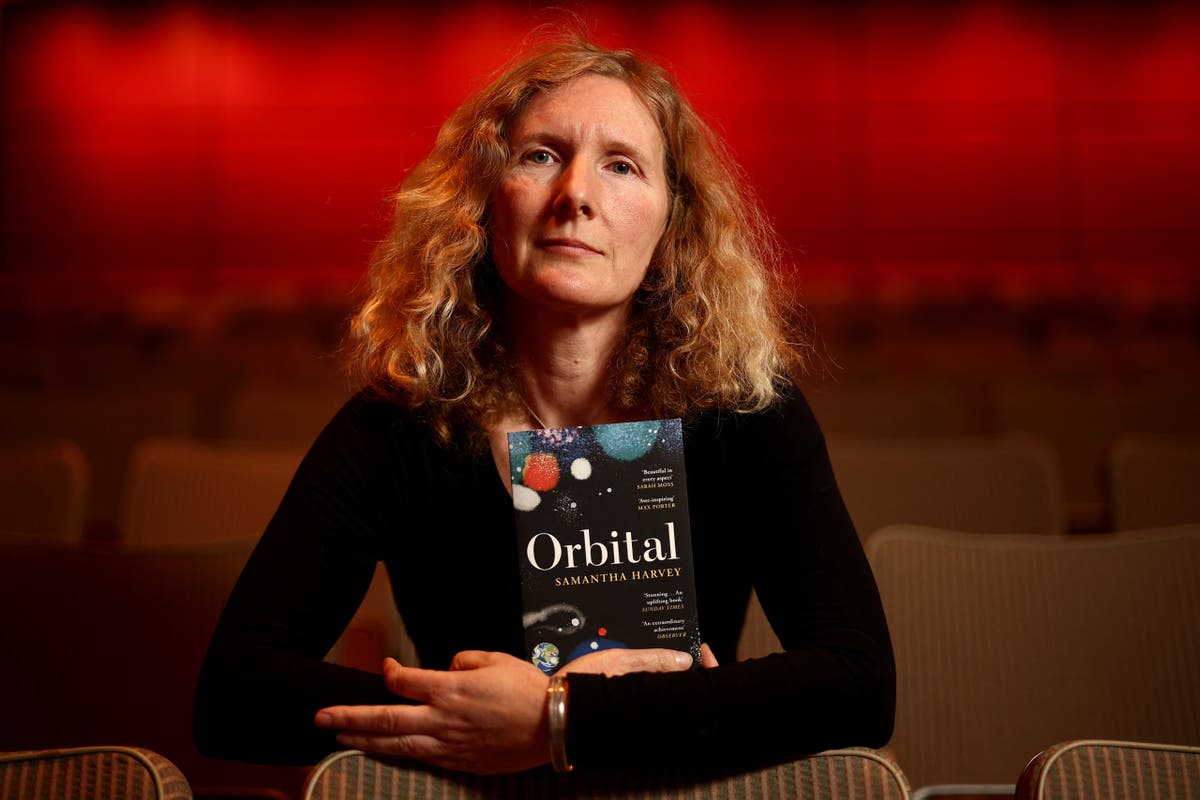The Booker Prize is billed as “the world’s most significant award for a single work of fiction”. It’s big business nowadays, promoted with internet events, talks, signings and a social media fanfare feeding 400,000 TikTok followers. I almost wish that deadpan football pundit Roy Keane was on duty for the ceremony itself, muttering “Lots of presentations… lots of hullabaloo… a lot of nonsense. Writing? That’s their job.”
Don’t get me wrong: 2024 winner Samantha Harvey has done a fine job with Orbital, which takes place over a single day in space. It’s a graceful, insightful meditation on the Earth and humanity and a worthy winner, despite not being the bookies’ favourite. The front runner was James, by American writer Percival Everett, a novel that puts James, the escaped slave Jim from Mark Twain’s 1884 novel Adventures of Huckleberry Finn, at the centre of the action. I gave the novel four stars in April, enjoying its droll, clever, lacerating story.
Prize awards aside, it’s fruitless and almost impossible to pick between the merits of two such different novels. What is hard to believe, though, is that the Booker judges would have risked the fallout from trumpeting a shortlist dominated by “the highest number of women in the prize’s 55-year history” and, being fully aware that the prize has gone only six times to women since 2008, then handed the £50,000 award to the shortlist’s sole man. Edmund de Waal, chair of the judges, was asked specifically whether the only male writer had a “genuine chance” and insisted the decision “wasn’t a tick-box exercise”. He said the panel was unanimous that Harvey, the only Brit in the running (she was born in Kent in 1975), was the right choice.
There was certainly no outstanding candidate from the other four short-listed books, although Canadian Anne Michaels’s Held, a novel spanning four generations, was perhaps my favourite, a work of real lyrical beauty. I also enjoyed Australian Charlotte Wood’s Stone Yard Devotional, although her brilliant 2019 novel The Weekend is better. Rachel Kushner’s Creation Lake and Yael van der Wouden’s debut The Safekeep were always long shots.
So what of Orbital, the first Booker Prize-winner set in space and which, at just 144 pages, was the shortest book among the contenders (it’s only three pages longer than the shortest-ever Booker winner, Penelope Fitzgerald’s Offshore, which won in 1979)? Harvey is one of Britain’s most original, ambitious writers, and Orbital, her fifth novel, explores the life of six astronauts and cosmonauts aboard the International Space Station. During those 24 hours, they observe 16 sunrises and 16 sunsets.
Along with the two women and four men in space, Earth is one of the main characters. Through their planet-viewing windows, the astronauts observe climate breakdown first hand, as they watch a category 4 typhoon over the Philippines. Harvey describes the crew as “fortune tellers who can see and tell the future but do nothing to change or stop it”. They observe an ocean roll over a town, floodwaters surge inland, bridges giving way, devastation for humans.
Harvey’s win comes in the immediate wake of the terrible floods in Spain. The Booker press release describes Orbital as “a book about a wounded world” and cites its win in “a year of geopolitical crisis, likely to be the warmest year in recorded history”. Yet De Waal played down the idea that the award would influence the way readers “approach the environment”. He said: “No, I don’t think fiction has a practical impact. I’m not interested in books about issues. I’m interested in books that inhabit ideas through fiction. Whether it changes the next round of Cop, it’s not for me as the chair of judges to say. I don’t understand the relationship between fiction and political action. What I can say is that extraordinary fiction can change people and their experience, and it can change collective reading. It can change conversations between people now.”
The 2024 United Nations Conference of the Parties is taking place now in Baku, Azerbaijan, but I’m highly sceptical that Orbital (or any book for that matter), could make a jot of meaningful difference to changing the conversation about saving the planet. It’s been decades since Kurt Vonnegut summed it up with the lament that, “The good Earth – we could have saved it, but we were too damn cheap and lazy.”
In any case, I doubt political persuasion was Harvey’s aim. For her, Orbital is “space pastoral… a kind of nature writing about the beauty of space, with a slightly nostalgic sense of what’s disappearing.” The novel works effectively with scale, zooming between the cosmic and the mundane human, and sparkling with neat descriptions of the Earth’s bare beauty. “Africa from space looks like a late Turner,” writes Harvey, who worked for a brief time in an astronomy museum. The former student of philosophy at the University of York also captures the wakeful fragility of modern existence, with bleak observations about the enduring fate of all humankind. “Time moves on with its usual nihilism, mows us all down, jaw-droppingly insensate to our preference for living,” she writes.
Orbital, chosen from an original list of 156 books, is far from an intimidating read, however, and has already struck a chord with book buyers. It went into prize week as the “sales leader” among the shortlisted, having sold more than 30,000 copies since its release in June.
But while there are lots of things to admire about Orbital, I can’t match the admiration of De Waal, who hailed the book as “miraculous”, one he and his fellow judges felt “compelled to share”. The last Booker winner that came close to that was Douglas Stuart’s 2020 triumph Shuggie Bain. Then again, the whole business of Booker prizes has always been a cosmic crapshoot. I still marvel that William Trevor was nominated five times and never won, not even for The Children of Dynmouth (1976) or Reading Turgenev (1991). See, we all get starry-eyed over different things.

